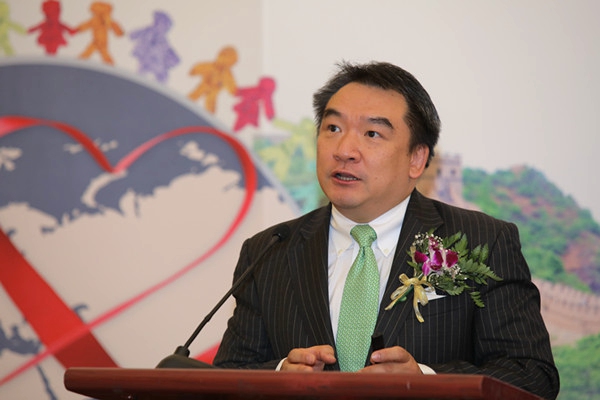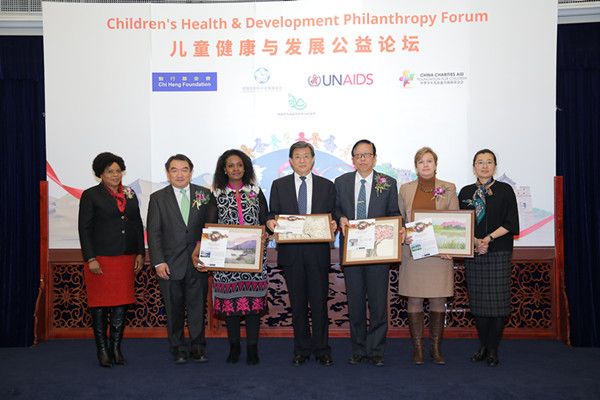Love enables AIDS affected children to live big dreams
- By Wu Jin
 0 Comment(s)
0 Comment(s) Print
Print E-mail China.org.cn, December 1, 2018
E-mail China.org.cn, December 1, 2018

20 years ago, AIDS was widespread amongst China's poverty-stricken villages as a result of illegitimate blood selling businesses, and the children who lived there suffered from destitution and social stigma.
However, over the past two decades, more than 95 young people from these villages have graduated from universities such as Shanghai University, Southeast University, and even the top-ranking Tsinghua University.
Despite such enormous childhood challenges, these young people can now look forward to a brighter future thanks to The Chi Heng Foundation. The NGO was founded by the banker-turned philanthropist To Chung, who endeavored to help such children achieve fulfilling and ordinary lives.
To recently reflected on his experiences while attending the Children's Health and Development Philanthropy Forum held in Beijing on Nov. 28. The forum jointly hosted by China Charities Aid Foundation for Children, China Friendship Foundation for Peace and Development and UNAIDS, in addition to Chi Heng Foundation, focused on sharing experiences and approaches concerning the development of younger generations.
At the conference To recalled how, by selling their blood through unhygienic operations, many of the parent's generation died as a result of disease, leaving their young children as orphans. Consequentially, these children were at risk of wandering the streets and falling further into destitution, so the foundation adhered to help turn these children into valuable social members.
"You could ignore them or love them and the different paths now show different results", he commented.
The Chi Heng Foundation has organized over 200 summer and winter camps, allowing these children access to opportunities in big cities such as Beijing, Shanghai, Guangzhou and Hong Kong.
Among them, a young man, who was 12-year-old and had never left his hometown, is now an undergraduate of Tsinghua University. He said that he had never conceived that the world outside could be so beautiful before attending the summer camps and he encouraged younger children to be determined to pursue their dreams no matter how difficult their circumstances were.
Upon witnessing the suffering caused by AIDS in the poverty-stricken villages of Henan province, To abandoned his glamorous social status amongst the banking elite, to instead focus on helping children afflicted by loneliness, poverty and discrimination. As he humbly states, "the world can live with one less banker, but these people are not getting any help."

The work of his foundation's two-decade endeavor has paid off. The young beneficiaries that he has helped are now able to receive an education and live a decent life.
Many of them, following To's example, have opted to return to their home villages and help younger people, especially girls, gain an adequate education.
At the same time, many more volunteers have joined the cause, often utilizing the internet to help children from remote villages read, write and paint.
"I have always been deeply touched by the children who would feel happy when they complete a painting for the first time in their lives," said Jenny Tong, a volunteering teacher from Hong Kong.
The future looks bright as Amakobe Sande, the Country Director and Representative of UNAIDS in China, states at the forum that the UN aims to eradicate AIDS by 2030.






Go to Forum >>0 Comment(s)